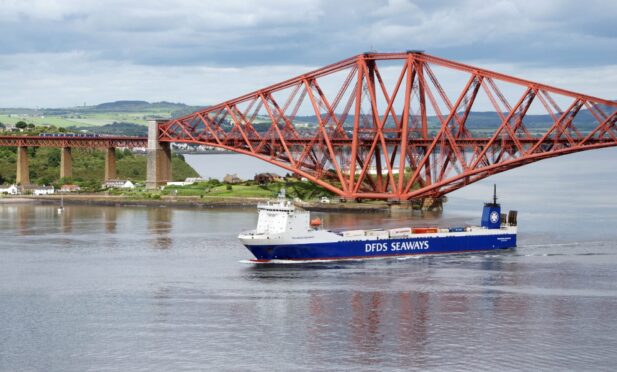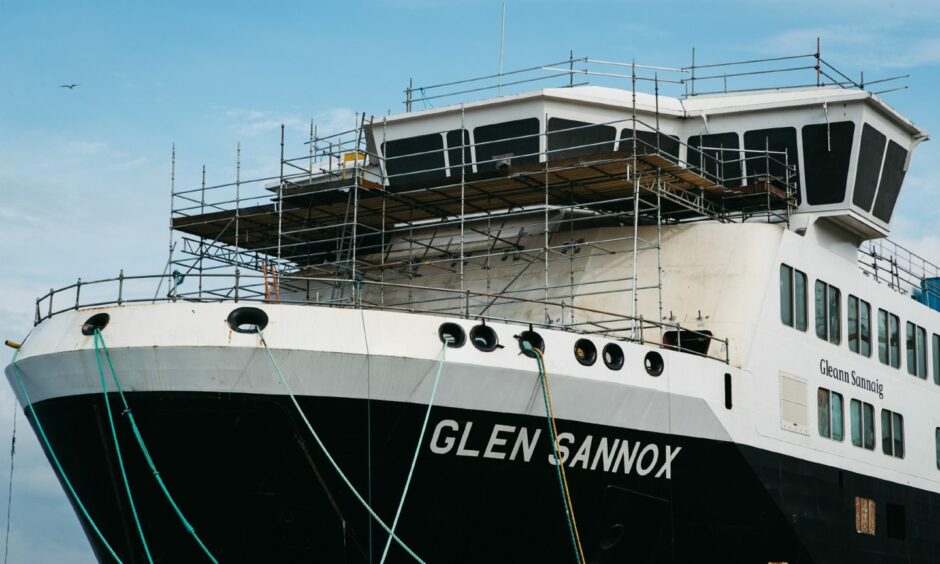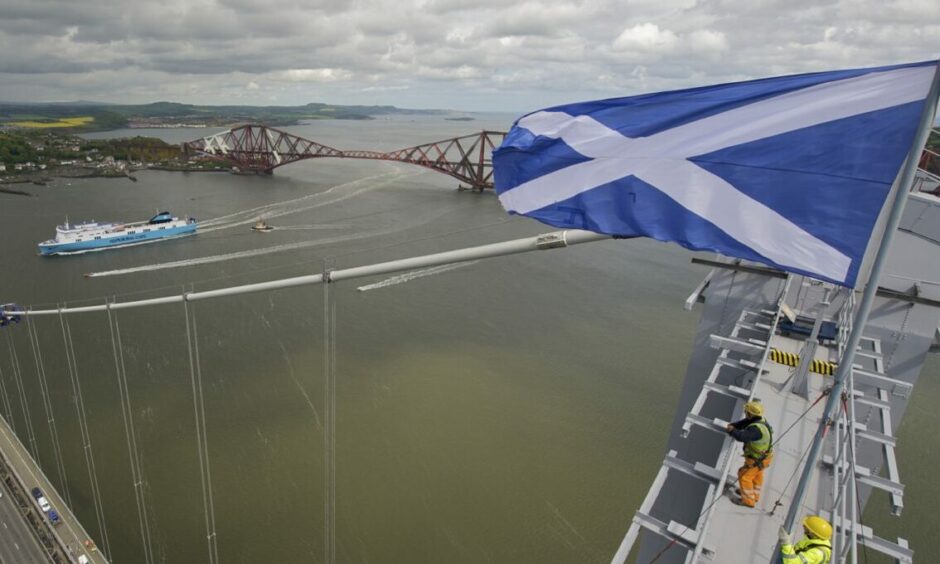The Scottish and UK governments are being accused of putting plans for a freight and passenger link to Europe at risk for the sake of a potential £5m start-up investment.
We can reveal the price tag days after the Rosyth-Dunkirk scheme was put on hold by backers frustrated that officials had failed to engage quickly.
It means the hoped-for May timetable has been binned, putting a serious question mark over the business case for future years.
Details seen by us show all the backers believe it would be a commercial success in the medium-term.
But the first-year expected losses mean the business needs between £5m and £10m to go ahead.
Meanwhile, two CalMac ferries remain under construction on the Clyde with budgets soaring past £300m.
Former Scottish finance secretary Kate Forbes, who showed an interest in the link during last year’s SNP leadership contest, said the government should keep the plans alive.
“It was encouraging to see private sector commitment to running this link, but now it requires some public investment to stay afloat,” the Highlands MSP said.
“I hope that Transport Scotland, or another public body, might see the benefit of this initiative and consider partnering with the private sector to ensure it doesn’t fail at the final hurdle.
“Scotland is investing significantly in ferries, and a further £5 million would likely bring considerable economic benefits.”
Island ferry headache
Ferries have been a major headache for the SNP government. The over-budget, delayed CalMac ferries still under construction are a huge drain on public funds.
It is estimated those two boats will cost £360m when completed – up from £97m in 2016.
Some involved in the Rosyth plan worry the CalMac problem is causing jitters.
“It is a mess – I think because it is ferry related that might be part of the issue,” one source claimed.
However, Derek Sloan, the Scottish businessman behind the proposals, said there’s still time for the government get in touch.
“We are fully confident this will happen but it needs funding support during that period as we build up the business,” he said.
“Having the Scottish Government contributing is a good signal to the market and public – and a significant economic benefit for the country.”
Dyce Carriers truck firm backs plan
Road hauliers are among the companies keen to make use of a direct freight ferry.
Dyce Carriers, based on the edge of Aberdeen, runs about 1,000 loads by truck each year from there and its depots at Dalgety Bay, Grangemouth and Poole to the European mainland.
The firm’s business development manager, Richard Workman, said it would cut his fuel bill significantly.
“The route was a tremendous success previously and provides a vital link between Scotland and Europe,” he said.
“It should mean quicker delivery times to customers. Instead of 294 miles from Aberdeen to Teesport it would be 114 miles from Aberdeen to Rosyth.
“The bulk of our import business comes into central Scotland and instead of 187 miles from Teesport it’s around 20 miles to most delivery points from Rosyth.
“By having our depot in Dalgety bay we are only several miles from the ferry port and have more capabilities to service Rosyth Port.”
The plan is to run one boat three times a week between the Port of Rosyth and Dunkirk.
Earlier plans to run to Zeebrugge in Belgium were changed late last year.
It would be the first direct link from Scotland since 2010.
Under the new plan, passengers would disembark just three and half hours from Paris by road and two hours by fast train.
In an email last week, DFDS ferries sounded the alarm about progress.
“Our desired start date for the service was May 8th, but having reviewed our detailed planning over the course of last week, we have concluded that the date is no longer feasible,” DFDS wrote.
Port of Dunkirk authorities had said it was “fully committed” and remains keen.
Dunfermline and West Fife MP Douglas Chapman said talks are still going on to broker a deal.
“In the great scheme of things we’re talking about a relatively small amount of money over a few years,” he said.
Scottish Government agency Transport Scotland says the ferry had to be commercially viable – but left the door open to further talks.
In a statement, the agency said: “We will continue to engage with port operators and others to explore how that might be delivered so that Scottish exporters have more direct routes to market.”
The UK Government said it is for the Scottish Government to “manage requests” for any funding.







Conversation